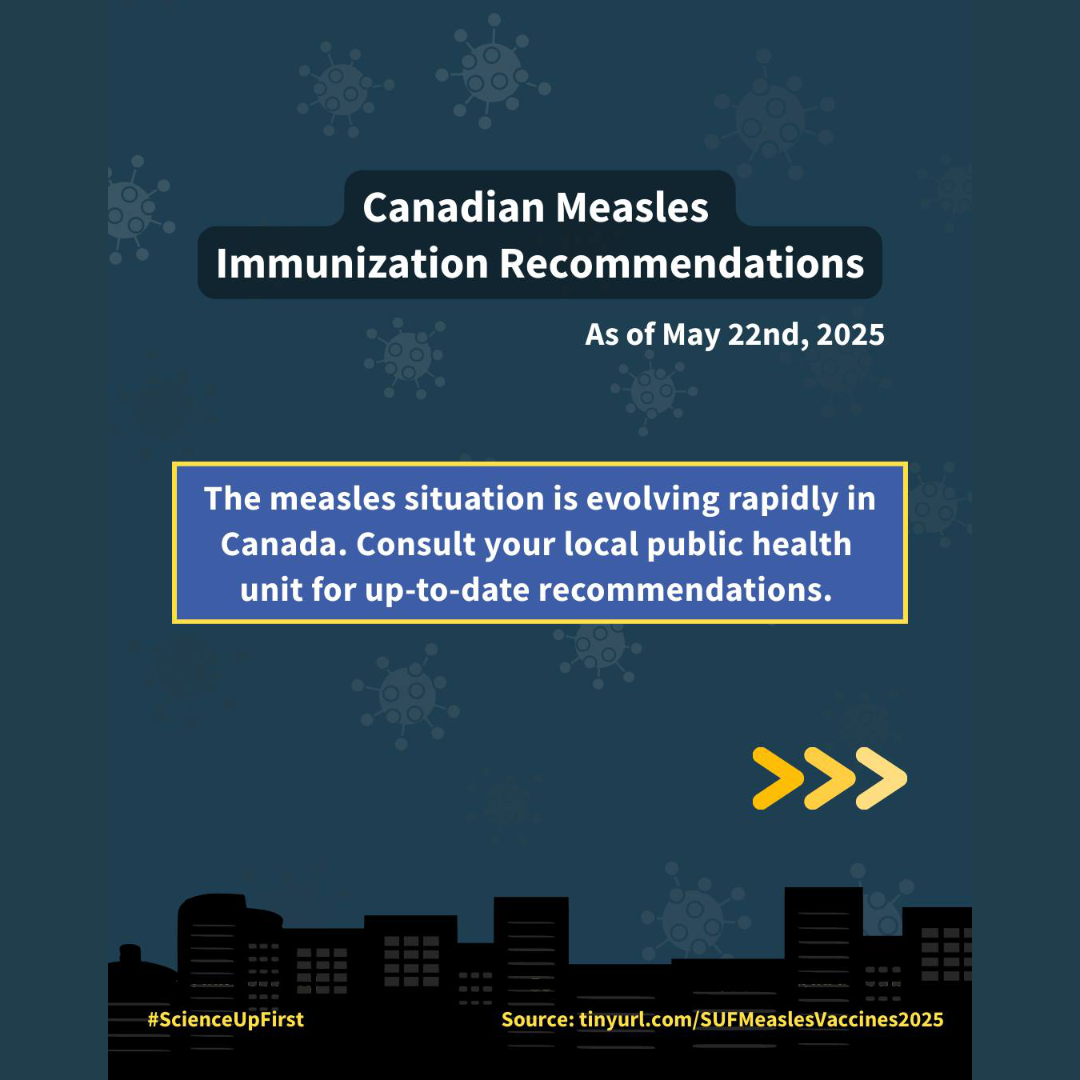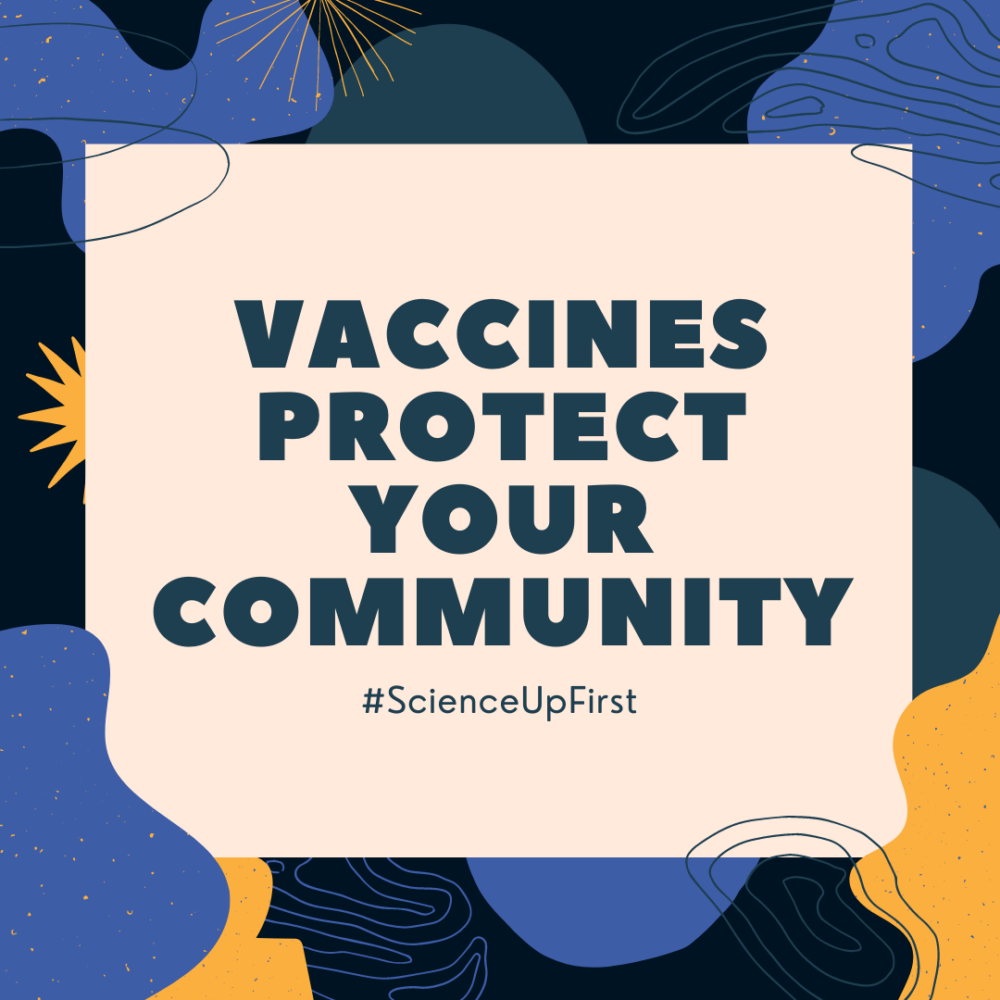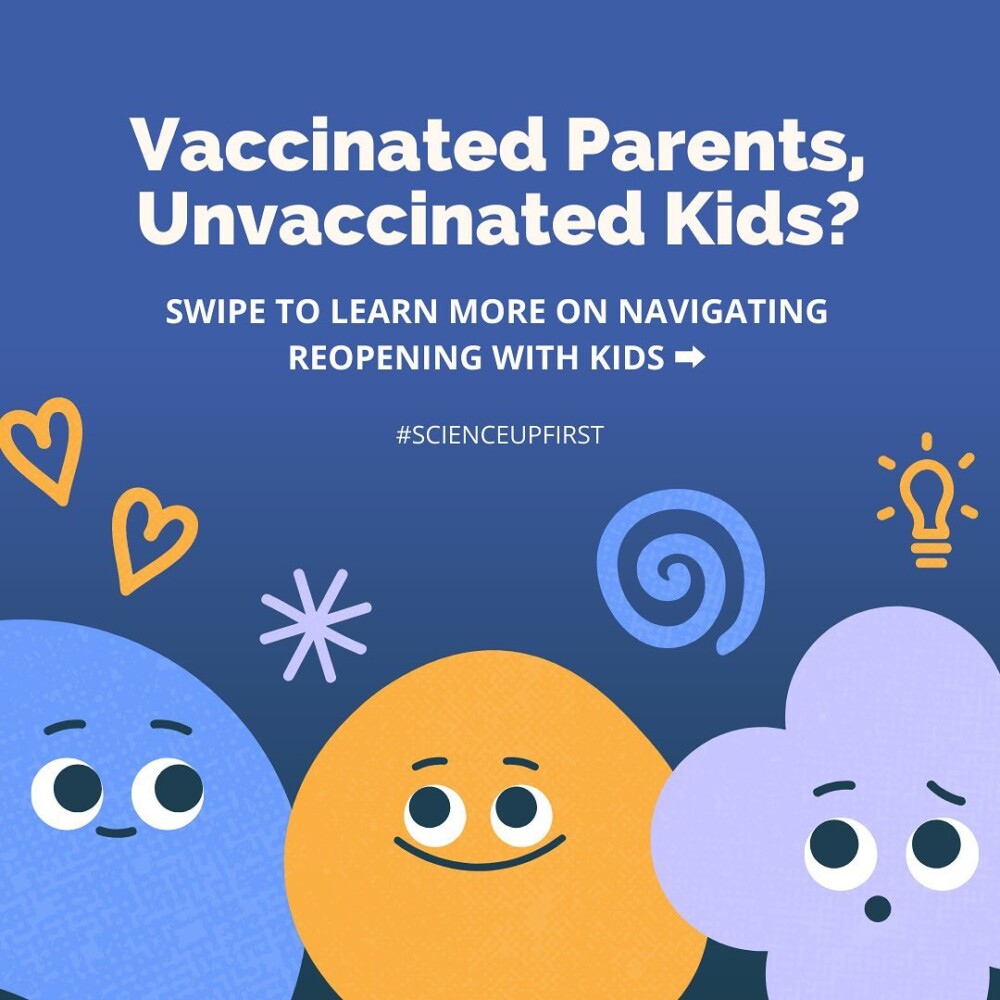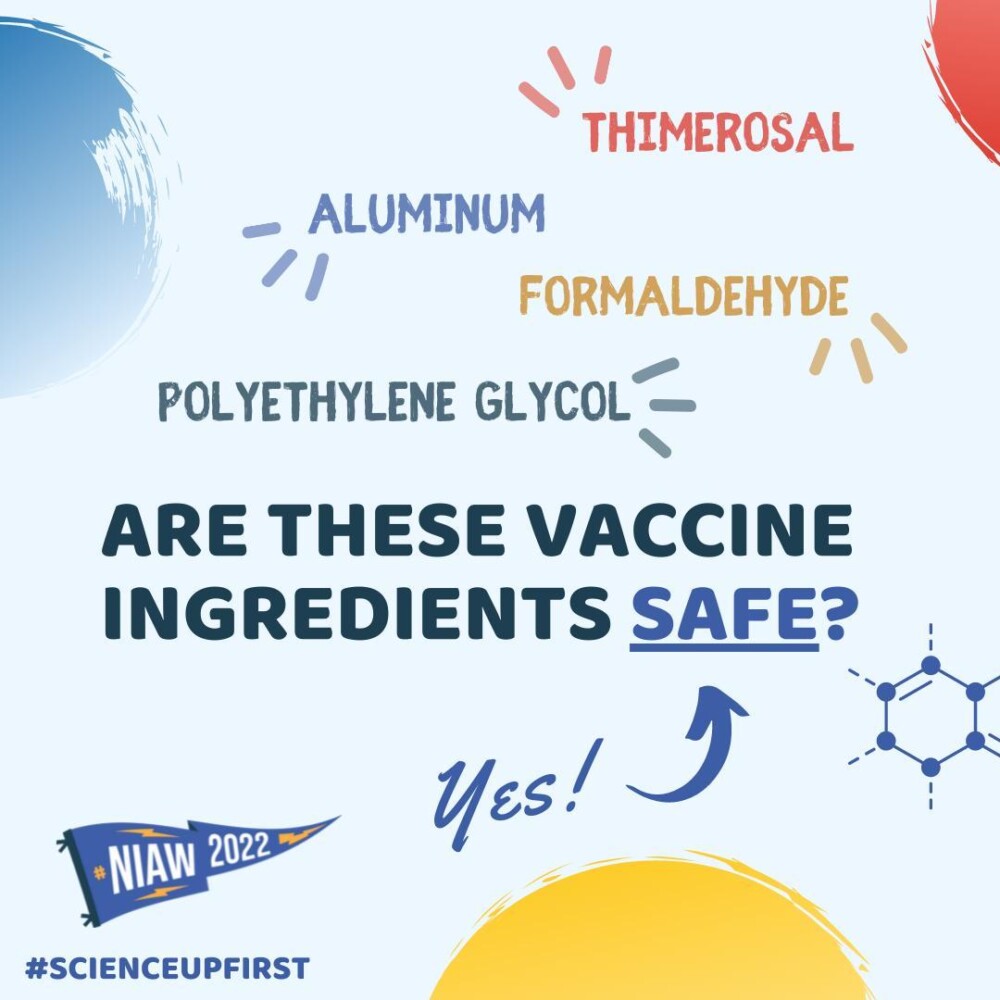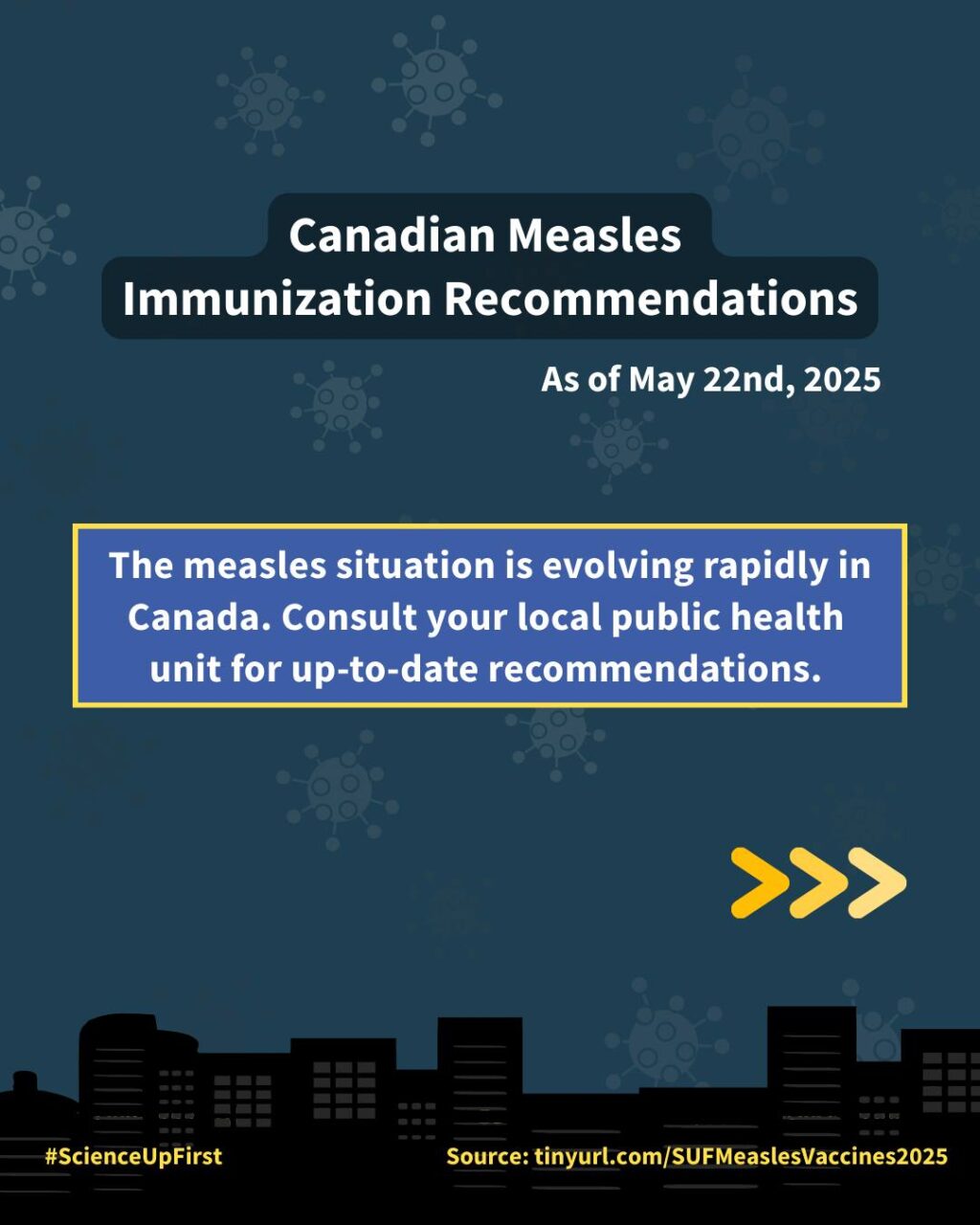
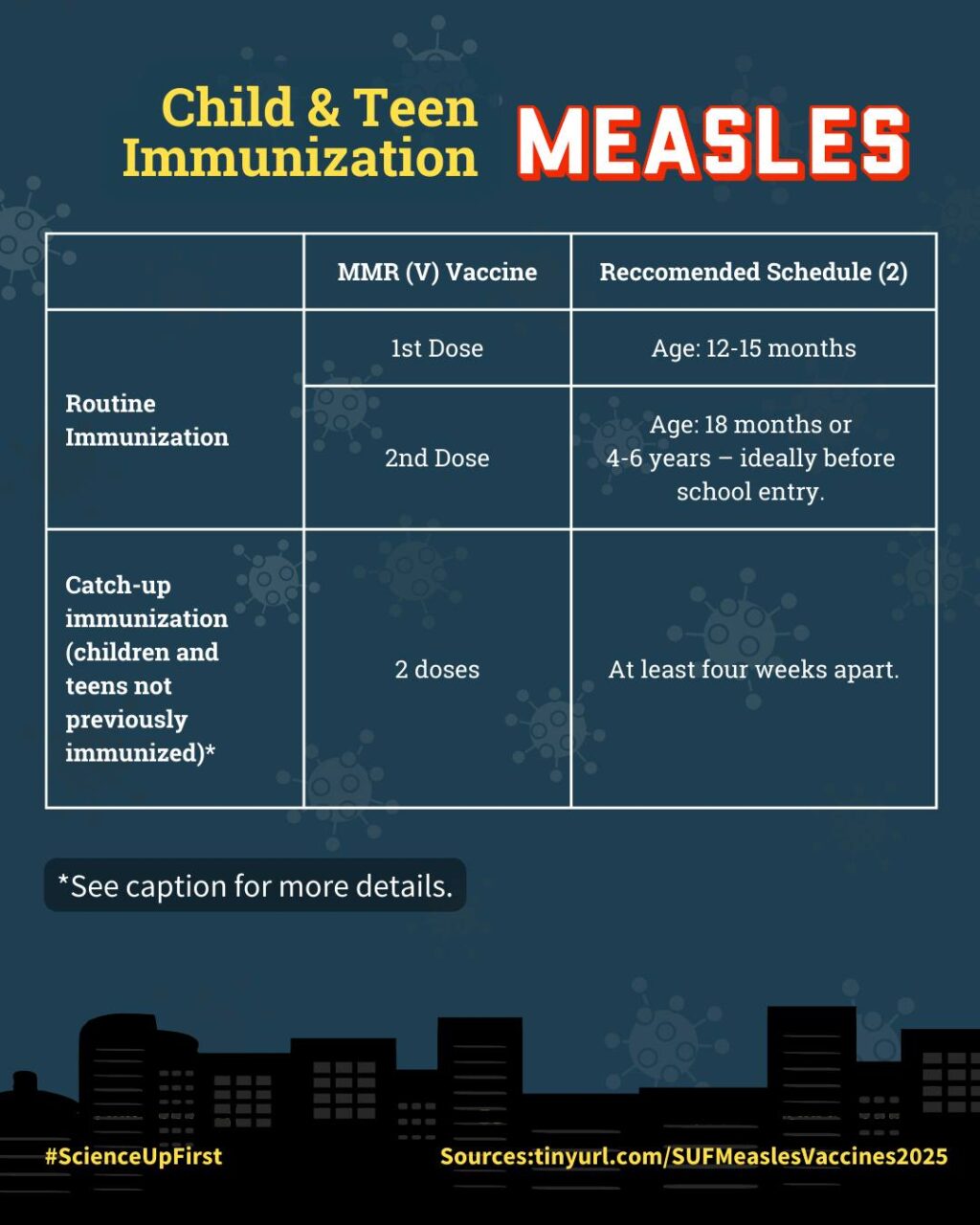
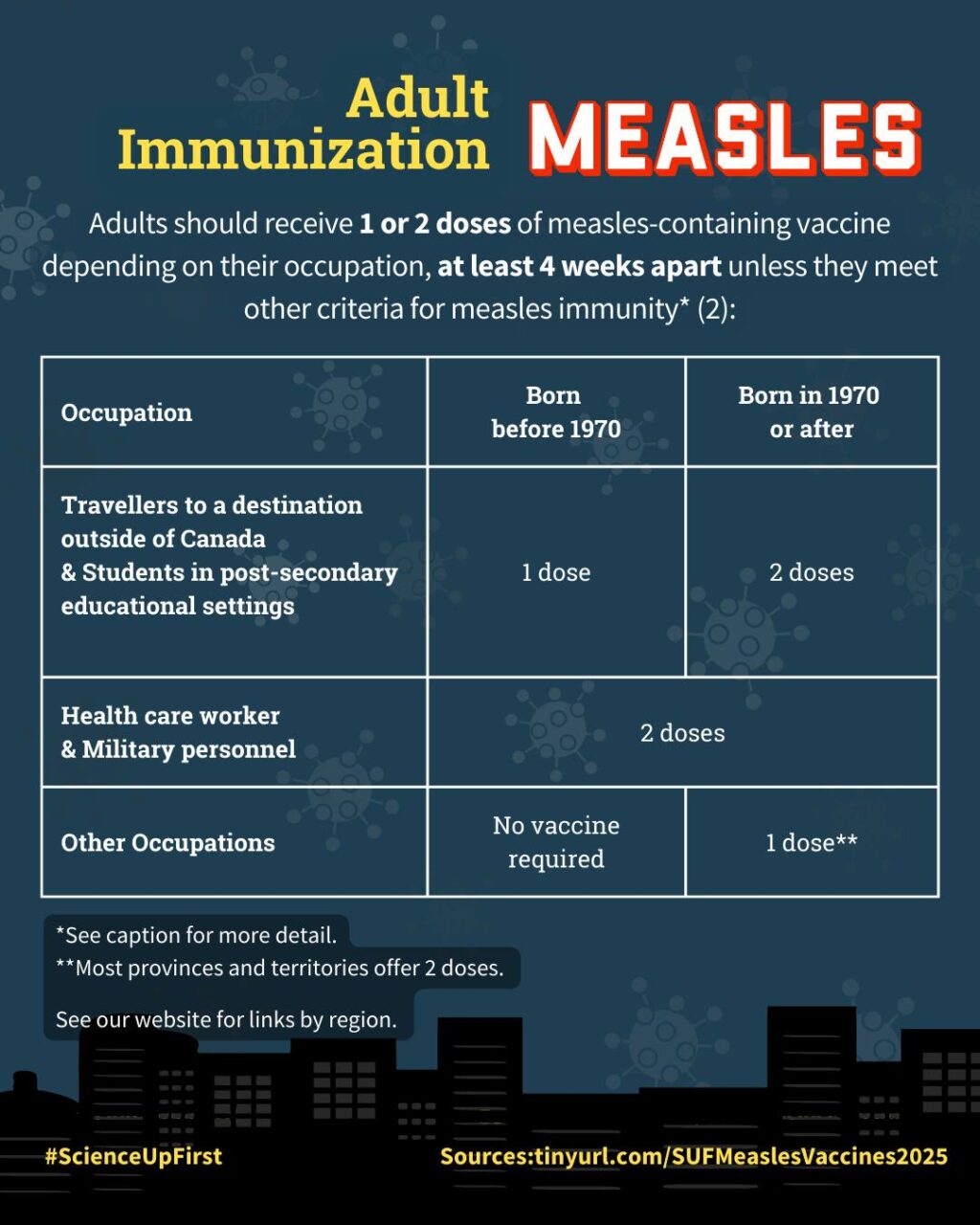
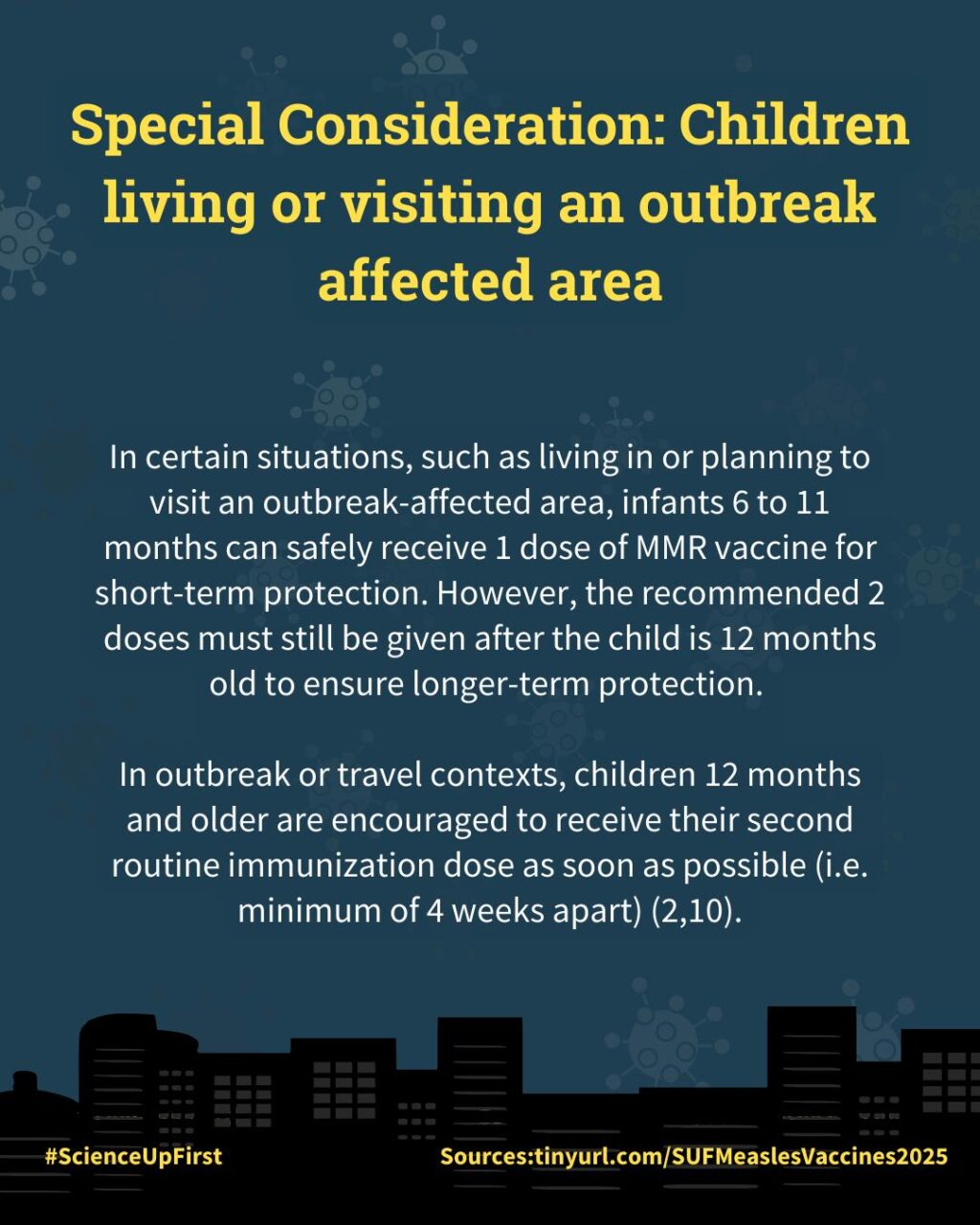
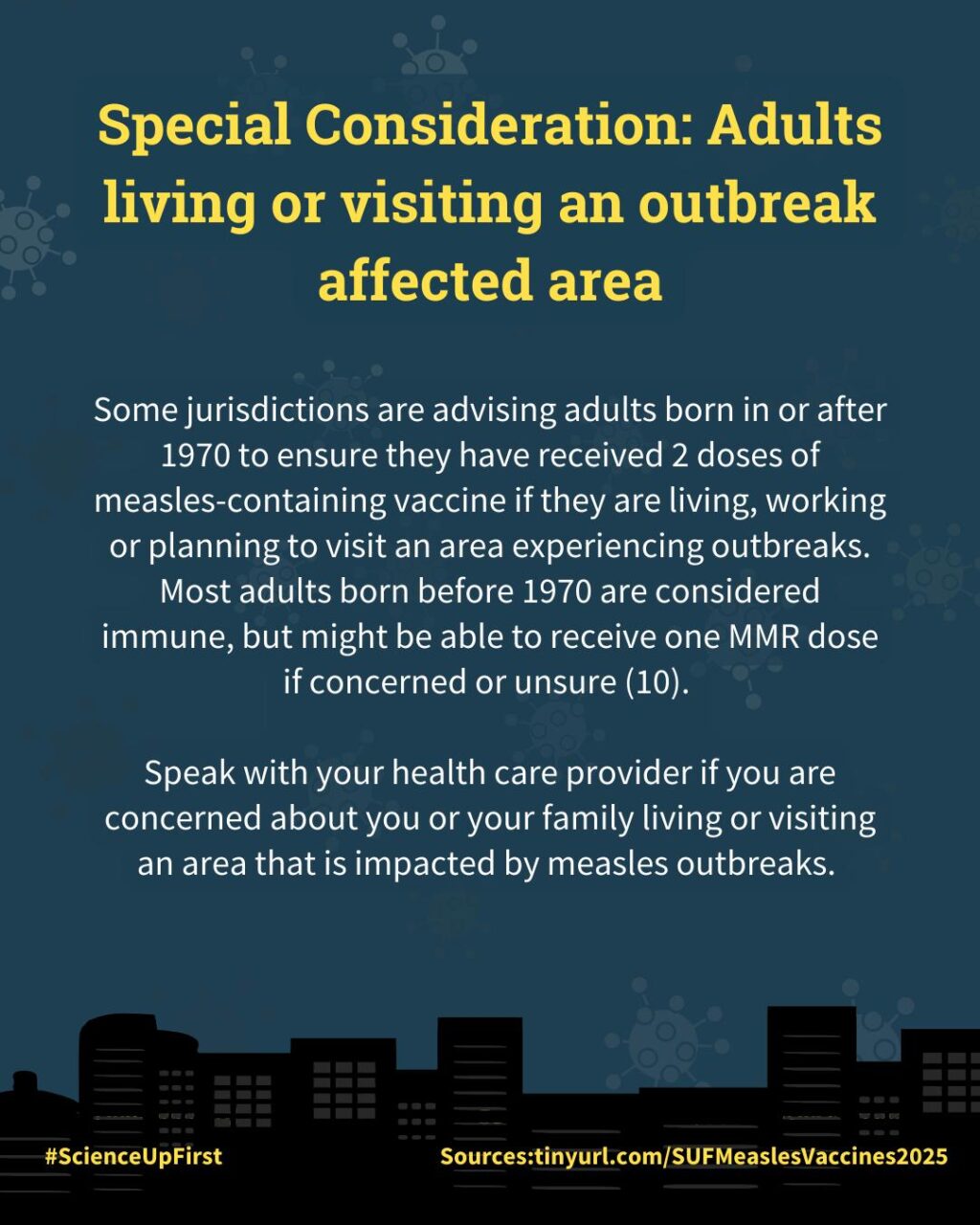
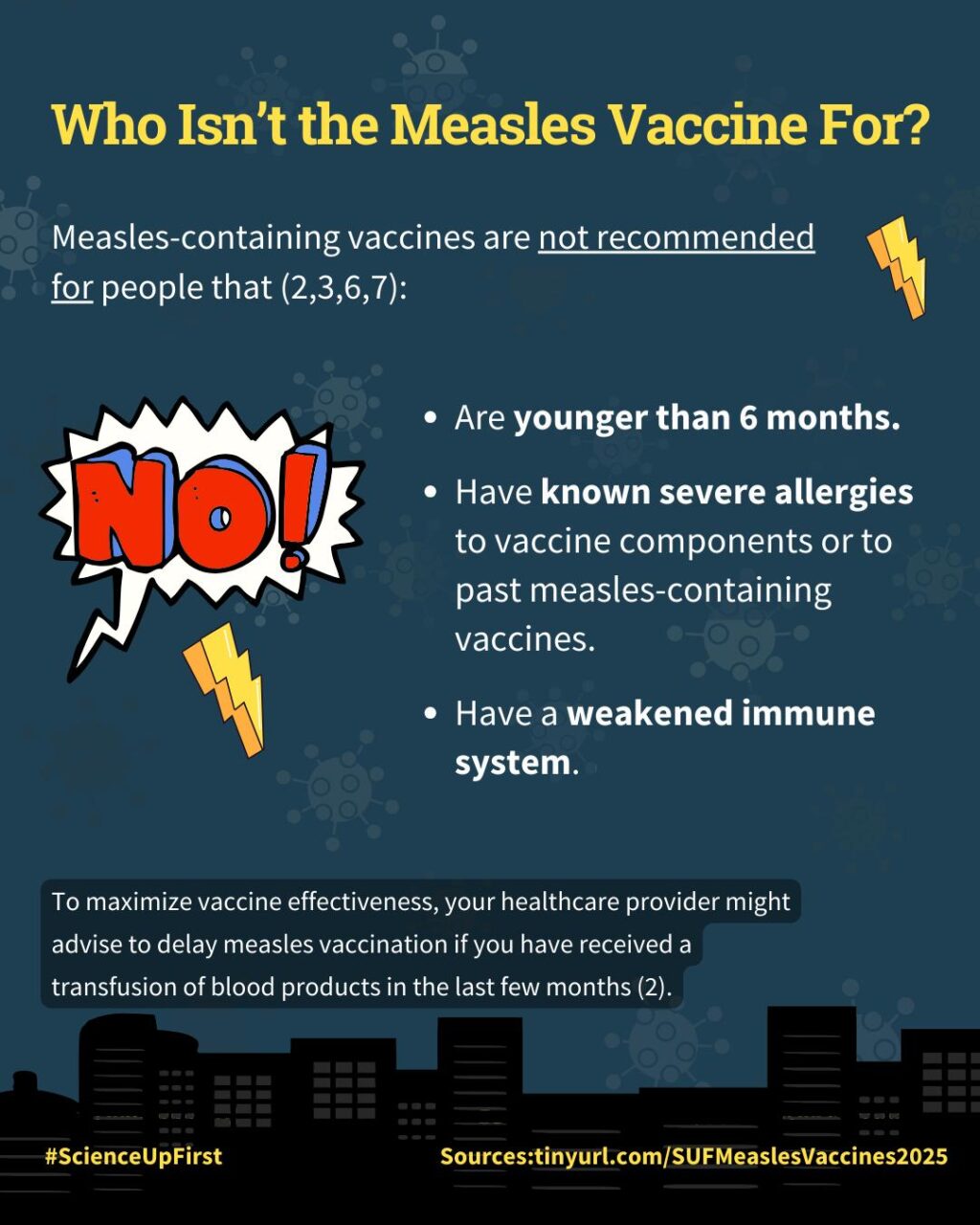
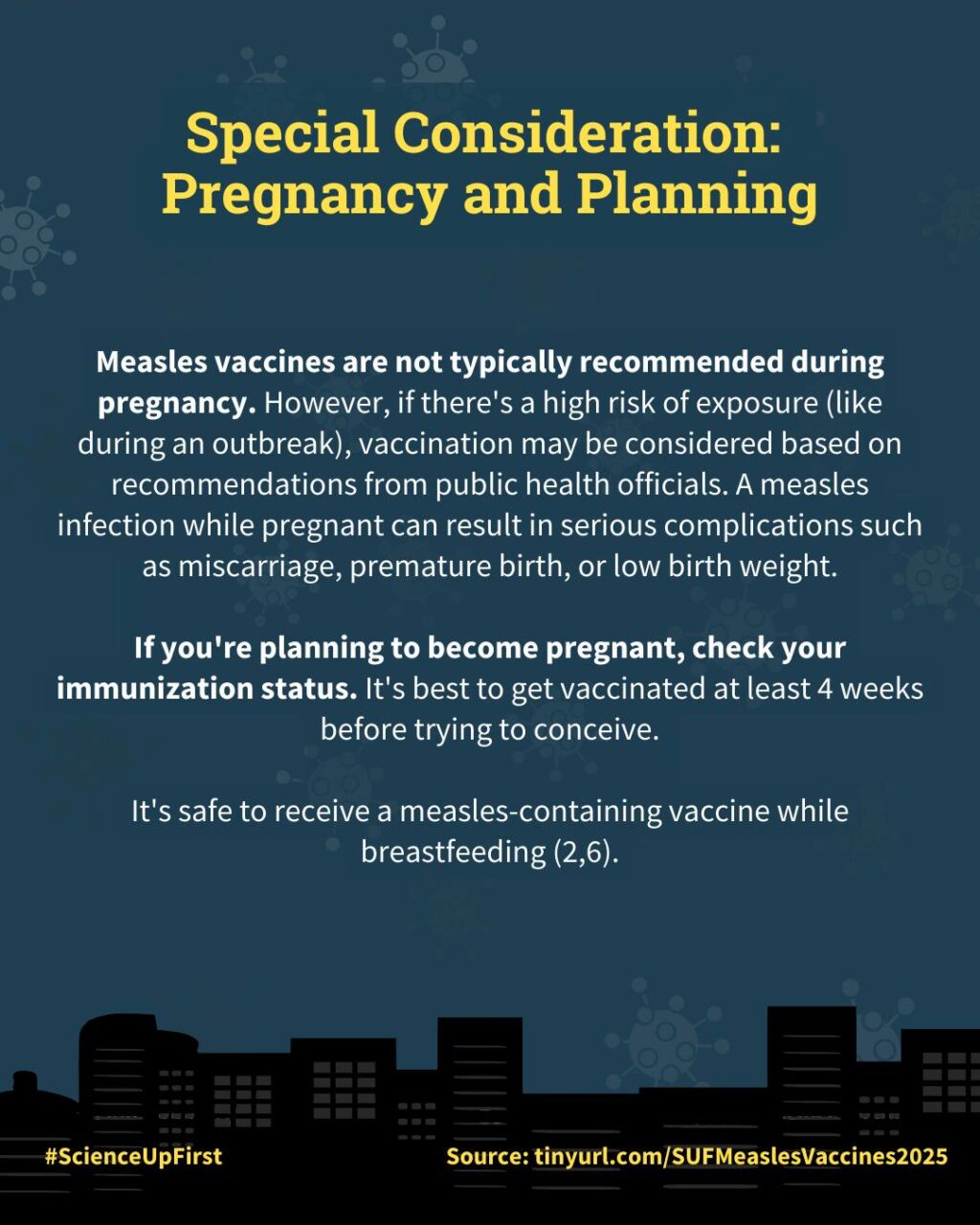
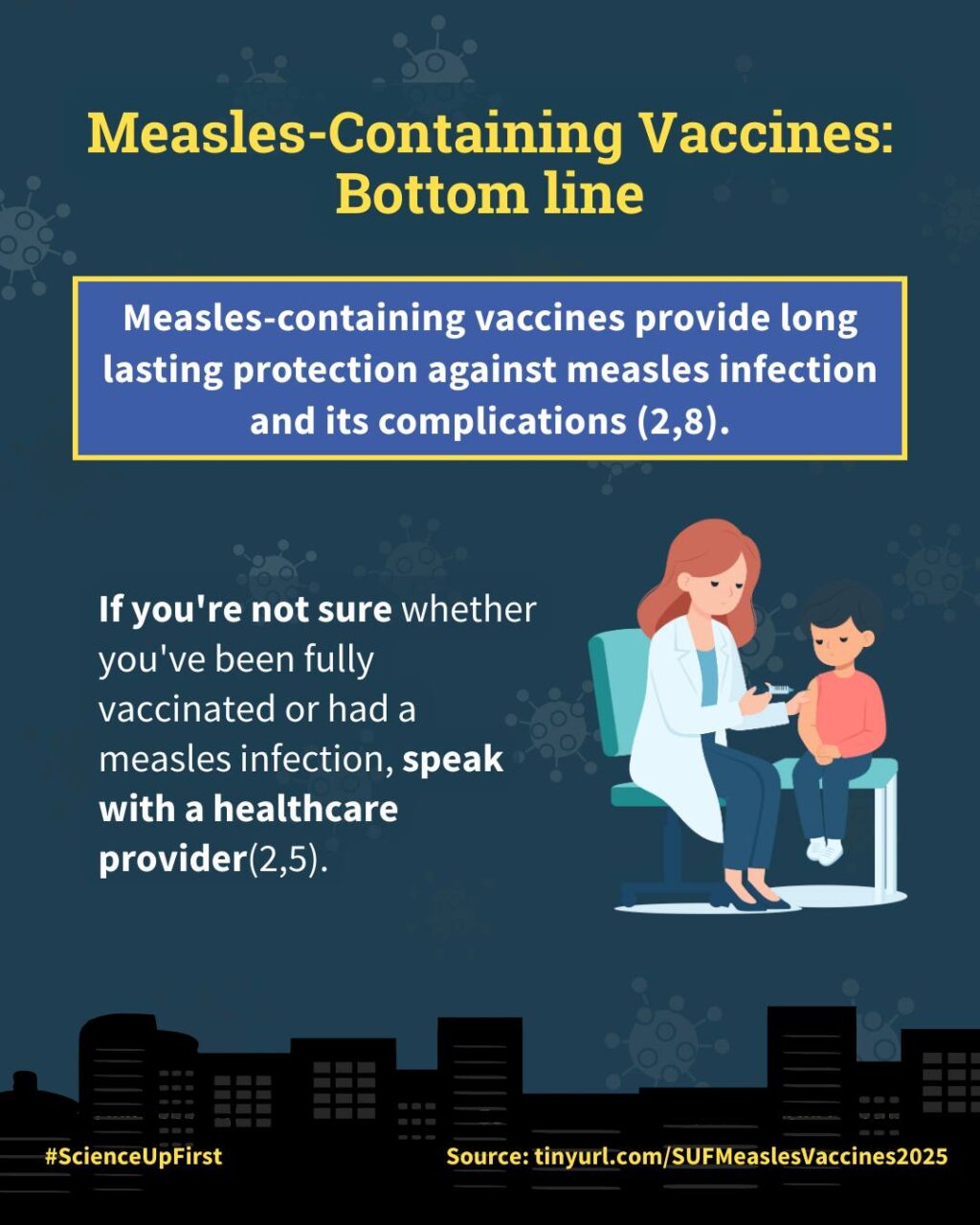
There were a lot of questions about measles vaccination, so here’s a quick guide that hopefully makes things a little clearer.
Measles-containing vaccines are recommended for anyone without contraindications (medical reasons not to receive the vaccine) that are not fully immunized against measles (2).
The measles vaccine is offered as part of combined vaccines [measles, mumps, rubella, and sometimes varicella (MMR-V)]. They provide 85-95% protection after the first dose and 97-99% after the second (2,3,4).
Children & Teens Immunization
As part of Canada’s routine immunization, children should receive their 1st dose of measles-containing vaccine between the age of 12 and 15 months, followed by a 2nd dose at 18 months or at 4-6 years. Both doses should be administered before they start school (2).
Children and teens who did not get immunized through routine immunization, and do not meet the criteria for measles immunity (i.e., without documentation of vaccination or a history of laboratory confirmed infection or evidence of immunity), should receive 2 doses of measles-containing vaccine, spaced at least 4 weeks apart (2).
Adult Immunization
Individuals born before 1970 are generally considered immune through previous natural infection and are typically not recommended to be vaccinated against measles unless they are (1,2):
- Traveling outside of Canada or are a post-secondary student, in which case 1 dose of vaccine is recommended.
- A health care worker or a military personnel, in which case 2 doses, at least 4 weeks apart, are recommended.
People born in or after 1970 are considered immunized to measles if they have (2,5):
- Documentation proving they have received the recommended doses for their age group and/or occupation
or
- Laboratory evidence of past measles infection (documented infection or measles serology result).
The Canadian Immunization Guide recommends that adults born in or after 1970 who do not meet these criteria for measles immunity receive one dose of measles-containing vaccine. A second dose, at least 4 weeks later, is recommended for those who are traveling outside of Canada, are post-secondary students, healthcare workers, or military personnel (2). Most provinces and territories offer two doses to all adults born in 1970 or later. Check out our sources for region-specific links.
Special Consideration
Children living or visiting an outbreak affected area
In certain situations, such as living in or planning to visit an outbreak-affected area, infants 6 to 11 months can safely receive 1 dose of MMR vaccine for short-term protection. However, the recommended 2 doses must still be given after the child is 12 months old to ensure longer-term protection. In outbreak or travel contexts, children 12 months and older are encouraged to receive their second routine immunization dose as soon as possible (i.e. minimum of 4 weeks apart) (2,10).
Adults living or visiting an outbreak affected area
Some jurisdictions are advising adults born in or after 1970 to ensure they have received 2 doses of measles-containing vaccine if they are living, working or planning to visit an area experiencing outbreaks. Most adults born before 1970 are considered immune, but might be able to receive one MMR dose if concerned or unsure (10).
Speak with your health care provider if you are concerned about you or your family living or visiting an area that is impacted by measles outbreaks.
Pregnancy and Planning
Measles vaccines are not typically recommended during pregnancy. However, if there’s a high risk of exposure (like during an outbreak), vaccination may be considered based on recommendations from public health officials. A measles infection while pregnant can result in serious complications such as miscarriage, premature birth, or low birth weight.
If you’re planning to become pregnant, check your immunization status. It’s best to get vaccinated at least 4 weeks before trying to conceive.
It’s safe to receive a measles-containing vaccine while breastfeeding (2,6).
Who is the measles-containing vaccine not for?
Measles-containing vaccines are not recommended for people that (2,3,6,7):
- Are younger than 6 months.
- Have known severe allergies to vaccine components or to past measles-containing vaccines.
- Have a weakened immune system.
To maximize vaccine effectiveness, your healthcare provider might advise to delay measles vaccination if you have received a transfusion of blood products in the last few months (2).
Bottom line
Measles-containing vaccines provide long lasting protection against measles infection and its complications (2,8).
If you’re not sure whether you’ve been fully vaccinated or had a measles infection, speak with a healthcare provider (2,5).
⚠️These are Canada-wide recommendations, but guidelines can vary by province/territory – especially in areas experiencing outbreaks. The measles situation is evolving quickly, and recommendations may change as new cases appear. For the most accurate and up-to-date guidance, check with your local public health unit – especially if you live in a region with high measles activity. ⚠️
You’ll find links to provincial and territorial measles vaccine recommendations to help you find the info you need below.
- Measles: For health professionals | Government of Canada
- Measles vaccines: Canadian Immunization Guide | Government of Canada
- Measles, Mumps, and Rubella (MMR) Vaccination | CDC
- Factsheet about measles
- Immunization of persons with inadequate immunization records: Canadian Immunization Guide | Government of Canada
- Immunization in pregnancy and breastfeeding: Canadian Immunization Guide | Government of Canada
- Measles vaccine | Immunize BC
- About MMR and MMRV Vaccines: For Providers | CDC
- Measles virus neutralizing antibody response, cell-mediated immunity, and IgG antibody avidity before and after a third dose of measles-mumps-rubella vaccine in young adults – PMC
- Routine and Outbreak-related Measles Immunization Schedules – Public Health Ontario
Share our original Bluesky post!
You’ve asked us a lot of questions about the measles vaccine. Here’s a quick guide that hopefully helps to clarify things a little. scienceupfirst.com/vaccines/mea… Read more here 👉 tinyurl.com/SUFMeaslesVaccines2025 #ScienceUpFirst
— ScienceUpFirst (@scienceupfirst.bsky.social) May 22, 2025 at 3:10 PM
[image or embed]
View our original Instagram Post!

